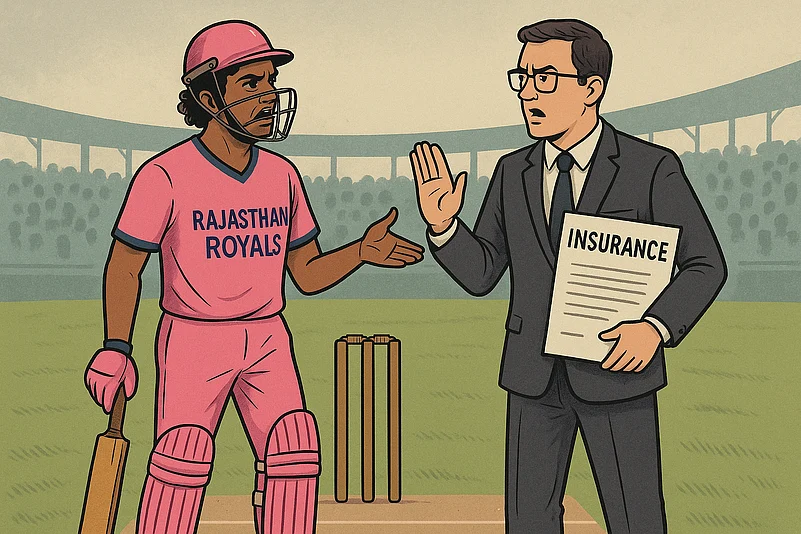
Summary of this article
Rajasthan Royals’ insurance claim over S. Sreesanth’s 2012 injury faces Supreme Court review.
United India Insurance rejected the claim citing non-disclosure of a past toe injury.
Courts stress “utmost good faith” — medical conditions must be declared upfront.
Lesson for policyholders: disclose pre-existing diseases honestly to avoid claim rejection.
The Rajasthan Royals’ dispute with their insurer over S. Sreesanth’s injury has been running since the 2012 IPL, according to a recent NDTV report. The pacer tore up his knee during a practice match in Jaipur, ruling him out for the entire season. The Royals had taken a cover of a little over Rs 8.7 crore to guard against such losses, and claimed about Rs 82 lakh towards Sreesanth’s pay.
The Royals’ Claim And The Insurer’s Rejection
United India Insurance refused to settle. The insurer maintained that Sreesanth had been suffering from a toe injury dating back to 2011, and claimed this detail had not been revealed at the time the policy was purchased. On that basis, the company said the cover didn’t extend to him and that the knee trouble couldn’t be treated as a separate case.
The Royals disagreed. They said the toe niggle was minor, never stopped him from playing, and had nothing to do with the knee blow that ended his season.
Legal Battle And The Supreme Court’s Questions
In 2023, the National Consumer Disputes Redressal Commission ruled in the franchise’s favour, ordering the insurer to release the money with interest. The firm has now taken the matter to the Supreme Court (SC).
The court has requested additional documents, such as Sreesanth’s fitness certificate and the original insurance form. One of the questions raised was whether, if the insurer knew of the toe issue, it should have issued the policy at all.
The fight is a reminder of how tricky injury cover can be in professional sport. Insurance contracts work on “utmost good faith” — everything material must be declared upfront. If it isn’t, companies can and do contest claims.
Personal Finance Lesson: Disclosure Is Non-Negotiable
For teams and players, the case underlines the need for clean medical records and clear disclosure. Without that, even straightforward claims can drag on, as this one has.
The SC’s decision, whenever it comes, will not just settle the Royals’ claim. It is expected to set the tone for how insurers and franchises handle pre-existing injuries in the years ahead.
For policyholders, too, this case shows how important it is to make proper disclosures when buying a health insurance policy. It is important to disclose all current health conditions honestly. That may mean that you have to pay a higher premium, but if you do not disclose your pre-existing disease, there is a chance that your health insurance claims will be rejected.













